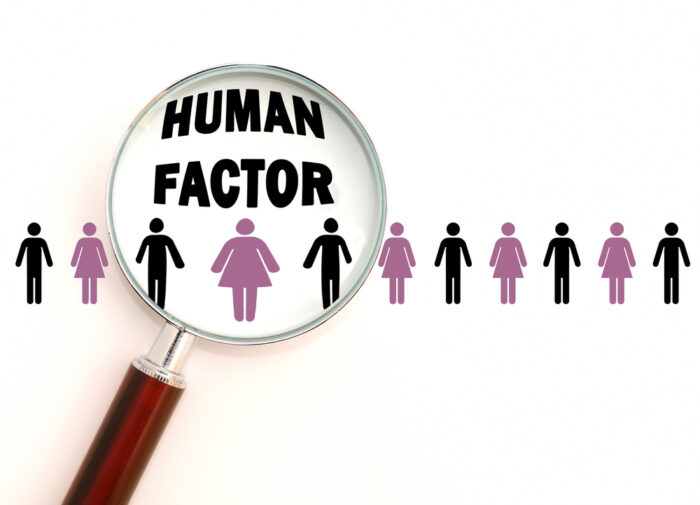Many kids struggle with building confidence and making friends after school. After-school programs can help by teaching social skills, self-confidence, and emotional growth. This blog will show how these programs foster teamwork, problem-solving, and healthy peer interaction.
Keep reading to learn more!
How After-School Programs Foster Confidence
After-school programs help kids feel proud of their abilities. They create spaces where youths can grow their self-worth and try new challenges.
Encouraging Leadership Roles
Youth development thrives when kids take on leadership. Leading a group teaches responsibility, teamwork, and problem-solving. It builds self-confidence by giving them control over tasks and decisions. Students in after-school programs often lead projects like service learning or team sports.
Leaders here also model good social skills for their peers. They learn to respect personal space, understand body language, and recognize social cues. These roles improve communication and emotional intelligence while fostering acceptance of differences—key traits for building healthy self-esteem next!
Building Healthy Self-Esteem
Group affirmations help boost self-esteem in teens. Saying positive words about themselves or others builds confidence over time. Positive reinforcement from a trusted facilitator adds value to these moments. Meaningful interactions with leaders also play a role in self-worth. Leaders who highlight strengths and encourage personal growth create an uplifting environment.
Activities such as multimedia art projects let kids express feelings creatively, boosting emotional intelligence. Encouragement during these tasks can further improve their emotional development and responsible decision-making skills.
Strong self-esteem helps build better relationships, solve problems effectively, and handle emotions well—leading naturally to social skills growth next.
Providing Positive Role Models
Strong role models help kids boost self-confidence and social skills. After-school program leaders show respectful communication, teamwork, and problem-solving daily. These actions teach children how to handle peer interaction and nonverbal communication.
Kids see examples of emotional regulation when leaders stay calm under stress. Responsible decision-making by adults in the program also shapes better attitudes in students. Positive behaviors shown by mentors inspire empathy, friendships, and interpersonal skills among children.
Social Skills Development in After-School Programs
After-school programs, which include various after school classes, play a crucial role in fostering social interaction among peers. These structured environments provide children the opportunity to engage in collaborative activities, learn from their peers, and practice new skills in a supportive setting.
Learning to Work in Groups
Group activities nurture teamwork and empathy. Children learn to share, take turns, and listen during tasks. These skills build strong social cues and better peer interaction. Team-building games also encourage negotiation and cooperation, which help in resolving conflicts.
Free play strengthens friendships while teaching respect for others’ ideas. Simple group projects or team sports can boost emotional regulation by requiring patience and responsibility.
Teaching Problem-Solving Skills
Group activities strengthen problem-solving skills through teamwork. Kids learn negotiation, turn-taking, and empathy during free play. These moments teach them to handle conflicts calmly while considering others’ feelings. Role-playing games in after-school programs develop curiosity and critical thinking by simulating real-world challenges.
Problem-solving builds confidence too. For example, team-building tasks encourage responsible decision-making as children brainstorm together. This grows emotional intelligence by teaching them how to react under pressure or adjust to change. Such skills enhance their social interactions with peers and improve mental health over time.
Practicing Self-Regulation
Kids develop emotional growth by practicing self-regulation skills. These abilities help manage emotions, focus on tasks, and resist distractions. After-school programs often teach emotional regulation through games, role-playing, or mindfulness exercises. Children learn to handle frustration during group activities or team sports.
Self-regulation also builds coping skills for stressful moments. For example, a child experiencing a traumatic event can use breathing techniques taught in SEL-focused sessions. Improving these skills boosts attention and responsible decision-making while encouraging healthier peer interaction.
Activities That Enhance Social-Emotional Learning
Engaging in a variety of activities not only aids in social skills development but also fosters essential emotional intelligence. These activities can range from team sports to creative projects and more structured education activities for kids. By participating in these learning experiences, children not only enhance their knowledge but also build confidence in expressing themselves and interacting with others.
Social Skills Groups
Social skills groups help kids build friendships and grow emotionally. These programs teach crucial social-emotional learning through guided activities.
- Kids practice peer interaction in a safe group setting. They learn to share, listen, and take turns during conversations or playtime.
- Role-playing activities help children read social cues better. This builds emotional intelligence and boosts confidence in social settings.
- Group challenges focus on teamwork and interpersonal communication. Through solving problems together, kids improve their collaboration skills.
- Leaders use research-backed methods to guide the sessions. Programs like “Beyond the Bell” also involve parent training for added support at home.
- Students with autism spectrum disorder (ASD) gain valuable social skills training here. They practice understanding others’ feelings and empathizing effectively.
- Regular participation improves emotional regulation in young people. This helps them stay calm, even in stressful social situations.
- Fun discussions cover topics like responsible decision-making and addressing implicit biases early on. Kids learn practical ways to handle prejudices thoughtfully.
Mindfulness Clubs
Mindfulness clubs help kids grow emotionally and connect with their feelings. These groups teach children tools to stay calm and focus better.
- Kids practice deep breathing, which lowers stress levels.
- Activities like yoga increase self-awareness and improve teamwork.
- Guided meditations teach emotional regulation for daily challenges.
- Group sessions promote strong peer interaction and empathy skills.
- Teachers or leaders model positive social cues for better communication.
These clubs work well with other after-school programs that build key social skills.
Physical Activities and Team Sports
Physical activities teach kids important life skills. Team sports, in after-school programs, also help emotional and social growth.
- Yoga improves self-awareness and stress relief. It builds confidence while teaching calmness and focus.
- Dancing inspires teamwork and communication skills. Kids gain respect for others through shared routines.
- Team sports like soccer or basketball encourage collaboration. Children learn to solve problems together in real time.
- Playground games enhance empathy and sportsmanship. They also boost peer interaction through fun challenges.
- Physical activities improve emotional regulation skills. They help children manage emotions during competition or teamwork.
- Activities like baseball promote leadership roles in groups. This helps kids grow their sense of responsibility over time.
- Sports offer a safe space to practice decision-making under pressure. Kids learn to act quickly while thinking responsibly about their choices.
Conclusion
After-school programs help kids grow in many ways. They boost confidence through leadership and self-esteem activities. These programs also teach teamwork, problem-solving, and emotional control.
Kids build friendships and learn social cues while having fun. Stronger skills today mean brighter futures tomorrow!



